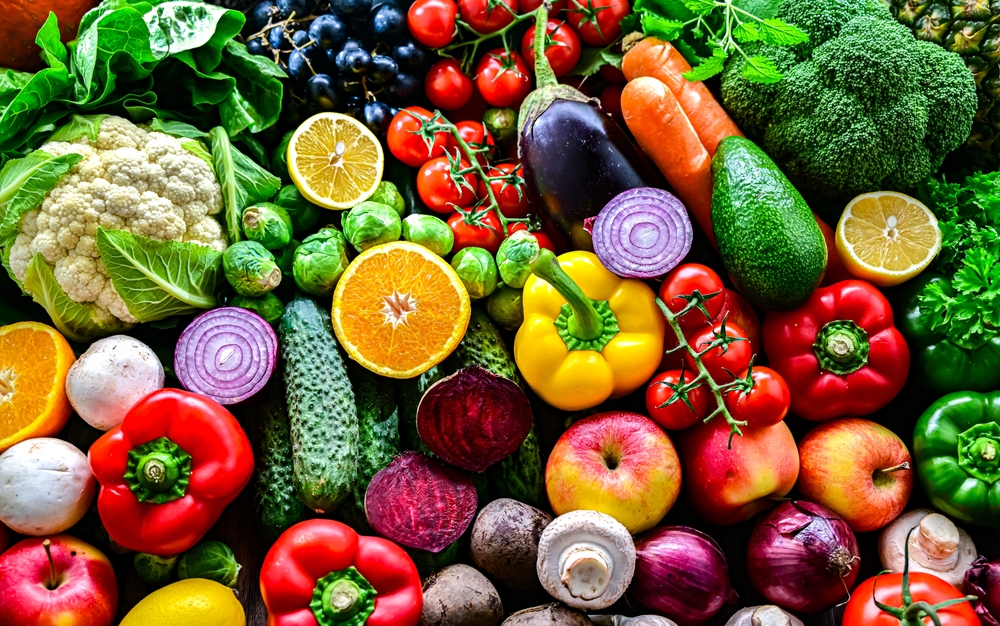Sustainable food isn’t just about saving the planet; it’s also a powerful way to enhance your physical health. In today’s climate-conscious era, what we put on our plates has a significant impact. By choosing local, seasonal, and responsibly sourced foods, we nourish our bodies while protecting the environment. Let’s explore how adopting a sustainable diet can transform your well-being and contribute to a healthier world.
1. The Synergy Between Sustainable Food and Health
1.1 The Foundations of Sustainable Eating
Sustainable food is rooted in simple principles: prioritize local and seasonal produce, reduce meat and processed food consumption, and minimize food waste. These choices benefit not just the planet but also our health. Fresh, natural foods are packed with essential nutrients and free from harmful additives commonly found in industrialized products.
1.2 The Power of Plant-Based Foods
Diets rich in fruits, vegetables, whole grains, legumes, and nuts benefit both the planet and our health. Research consistently links plant-based diets with lower risks of chronic diseases like diabetes, cardiovascular issues, and even certain cancers. Incorporating more plant-based meals strengthens your immune system and promotes longevity, proving that sustainable eating is a win-win for you and the environment.
2. The Environmental and Health Impact of Sustainable Food
2.1 Lowering Your Carbon Footprint
A key advantage of sustainable food is its role in reducing our carbon footprint. Intensive agriculture, especially for meat and dairy, generates significant greenhouse gas emissions. Opting for sustainable alternatives not only helps combat climate change but also provides healthier options for your body. Organic farming methods, for instance, avoid harmful pesticides and herbicides, resulting in nutrient-rich produce that supports biodiversity.
2.2 Biodiversity’s Role in Nutrition
Biodiversity is crucial for ecosystem health and, by extension, our physical well-being. Sustainable food practices encourage diverse crops, which means greater nutritional variety on your plate. Studies show that foods from diversified farming systems are often more nutritious than those from monocultures. By eating a range of fruits and vegetables, you fuel your body with a broader spectrum of vitamins and minerals.
3. Sustainable Food and Mental Well-Being
3.1 The Link Between Diet and Mood
What we eat doesn’t just impact our physical health; it also affects our mental state. Diets rich in fresh, unprocessed foods have been shown to improve mood and mental well-being. On the other hand, excessive refined sugars and trans fats can lead to anxiety and depression. Sustainable eating, with its focus on wholesome, fresh foods, supports optimal mental health and emotional balance.
3.2 The Benefits of Seasonal and Local Foods
Eating seasonal and local foods does more than support farmers—it enhances your dining experience. Seasonal produce is at its peak in flavor and nutritional value, while consuming locally connects you with the environment and fosters a sense of community. Cooking with fresh, local ingredients sparks creativity in the kitchen and provides a satisfying sense of accomplishment, boosting your overall quality of life.
4. Sustainable Practices for Conscious Eating
4.1 Reducing Waste for a Sustainable Plate
A zero-waste approach complements sustainable food practices. Simple steps like composting food scraps and purchasing in bulk help conserve resources and reduce pollution from packaging waste. By cutting food waste, you not only save money but also take meaningful action toward a sustainable lifestyle.
4.2 The Role of Education and Awareness
Educating yourself about the impacts of your food choices is key to sustainable eating. Understanding how these decisions affect both your health and the environment empowers you to make informed choices. Numerous workshops, online resources, and community programs offer valuable guidance for adopting a sustainable diet. Knowledge is the first step toward meaningful change.
Conclusion
Sustainable food is more than a trend—it’s a commitment to your health and the planet. By choosing fresh, local, and seasonal foods, you invest in your well-being while safeguarding the environment for future generations. Every meal is an opportunity to contribute to a healthier and more sustainable world. So, are you ready to turn your plate into a force for positive change?
Sources :
- World Health Organization (WHO) – “Healthy diet and its impact on health.”
- Harvard T.H. Chan School of Public Health – “The Nutrition Source: Healthy Eating Plate.”
- Environmental Working Group – “The Benefits of Plant-Based Diets.”
- The Lancet – “Food, Planet, Health: A global syndemic.”
- American Journal of Clinical Nutrition – “Plant-Based Diets and their Impact on Health.”


